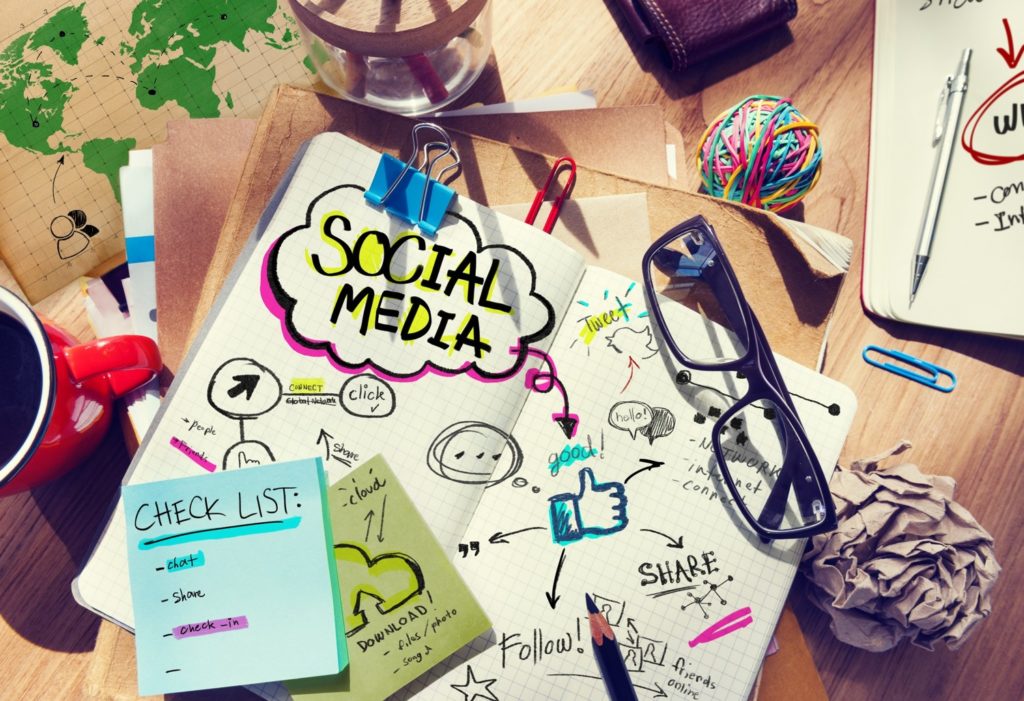
Last week, we wrote a post – “Who Owns Your DJs’ Social Media Accounts” – that stirred it up. We received a lot of comments, as well as conversation over the next couple days.
But one of the best comments actually reads like a blog post itself. It was written by Shannon Hernandez (“The Shan Man), a smart, savvy radio entertainer who dominates the nighttime airwaves on Hubbard’s KUPD in Phoenix. Over the years, he’s interfaced with thousands of listeners – on the phones, on the streets, and online – providing him with the opportunity to develop his technical, social, and digital marketing skills.
Shannon is also passionate about the podcasting space, and started speaking at the Podcast Movement conference before we did. He has a YouTube channel dedicated to helping content creators get started in podcasting.
In his comment, Shannon amplified many of my thoughts, pushed back on others, and questioned a comment made by Lori Lewis. So, in today’s post, you’ll read Shannon’s comment about the fine art of air personalities on social media, as well as hear directly from Lori Lewis on the same topic.
Of course, we’d love to hear your thoughts.
First, here’s Shannon Hernandez:
I’m not sure I would even have the answer to “who owns the account” because it seems to be a fine line for guys like me who have been on Twitter 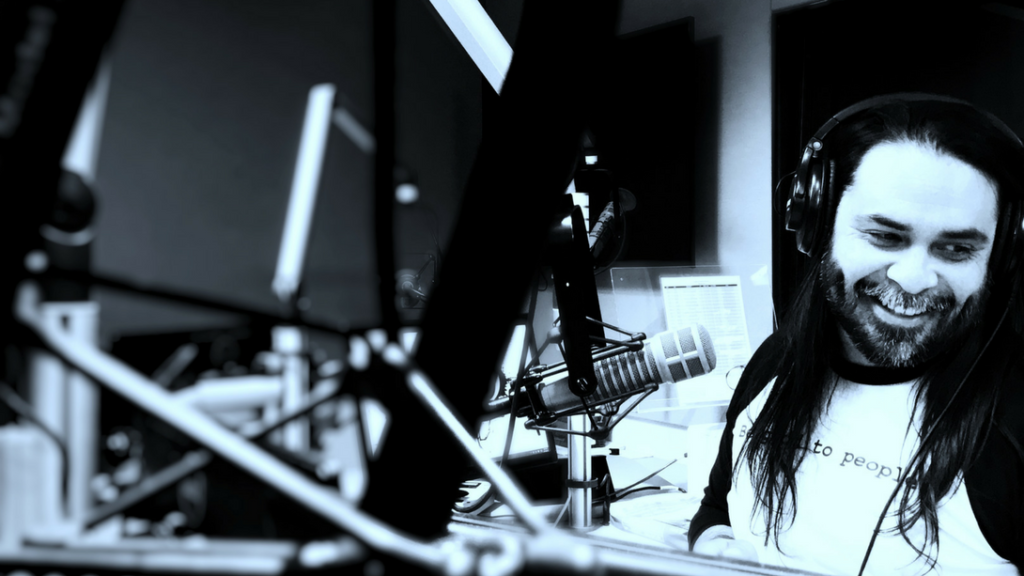 and Facebook since the beginning of those platforms.
and Facebook since the beginning of those platforms.
The whole reason I started those accounts was to share transparency and shift into a new form of communication that was not the studio phone. I saw the decline of interaction in studio phones when Twitter was just starting out and popular with flip phones.
In the beginning, I would use those platforms from my personal account to drive traffic back to the radio and inversely use the airwaves to drive traffic back to what we had available on our website.
The beauty of using a personal account was to delineate from what seemed “canned,” automated and corporate. It was real and that’s what people liked. I continue to share personal stories and pictures that help brand me and the radio station in tandem. I may be a personality, but I’m also a human who struggles to wake up and get my day started on some days. How can a corporation tell me how to feel when I wake up or what I can say on social while I’m on the radio?
This topic is wildly subjective because if you are allowing the company to control your personal social media, then it waters down everything that anyone does from a human perspective. I would hope most on-air talent use social media for “good” but I know that isn’t always the case.
I respectfully disagree with Lori’s insistence that the on-air jock only make it about the radio station social media while on the air. This becomes subjective when you’re dealing with a larger market social media account vs. a smaller market account and vice versa.
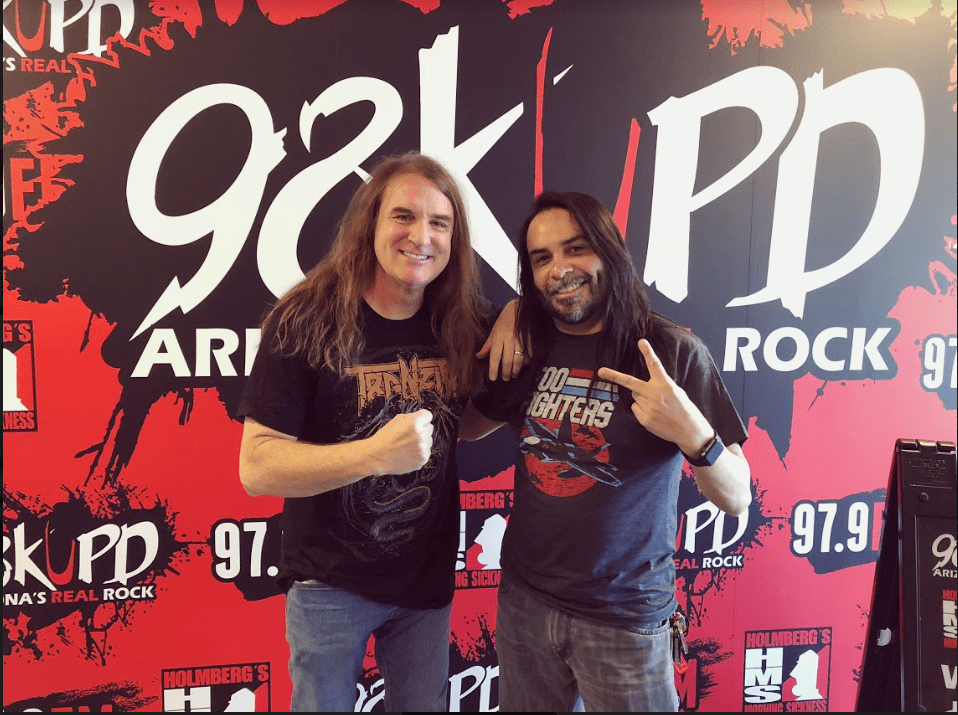
The way I look at a personality and station accounts is through a matter of leverage, brand building and brand reinforcement. For instance, by using my “fan” page on Facebook, I share anything I want that is within reason to gather engagement on each post.
Engagement could look like a link to local articles, music news, memes, pictures, etc. As a result, the station account re-shares what they feel is going to be relevant (and is also tipped off by me that I will be making a certain post) and helps build my own personal brand.
Inversely, when the time comes for the radio station to promote a particular show, I will re-share their post onto my timeline because algorithmically it makes sense for me to double-up on the content to get more eyes on the post we’re trying to drive traffic to.
I truly believe more stations should allow an individual personality account to say and share what they want as long as it is within reason. Ultimately at the end of the day, if the personality is more controversial than normal, then I believe it’s within reason for a market manager to intervene just as ABC had done with Roseanne.
How different is this if I participated in an activity outside of the station that didn’t meet the morals and standards of the radio station? Does the radio station have the right to intervene in something that I may be passionate about? What if I decided to respond to tweets about my outside activities while I’m on the air? Does a social media director have the right to tell me “No, you can’t tweet back?”
The topic becomes muddy and it will vary from market to market.
I believe that 80% of the problem with on-air personalities is that they DON’T know how to use each individual platform for their benefit so they 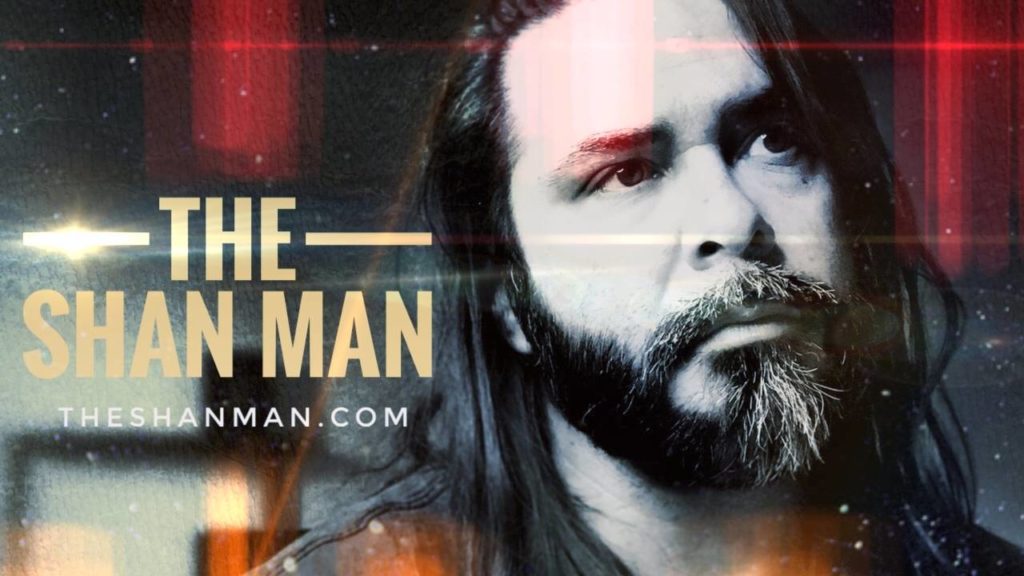 just post what they want. In turn, this makes management squirrely and question the content that is being posted on each platform. None of these platforms is created equally, but most DJs feel they are. This isn’t the case.
just post what they want. In turn, this makes management squirrely and question the content that is being posted on each platform. None of these platforms is created equally, but most DJs feel they are. This isn’t the case.
As you know, I’m a huge advocate of being as transparent as possible with who I am as a personality and what I do outside of the radio. This has awarded me with loyal fans who know I will hang out with on Twitter/Facebook and do exactly the same thing at a concert all while promoting the radio station events.
I won’t tell you that the way I do it is the right way. The way I do it works for me and has done so for years. I also know what my audience wants and likes, so I give them what they want and try to not reinvent the wheel.
And here’s Lori Lewis’ response:
First, I love the “respectfully disagree” phrase. Not many people extend that type of kindness prior to opposing opinions – so, very nice, and thank you.
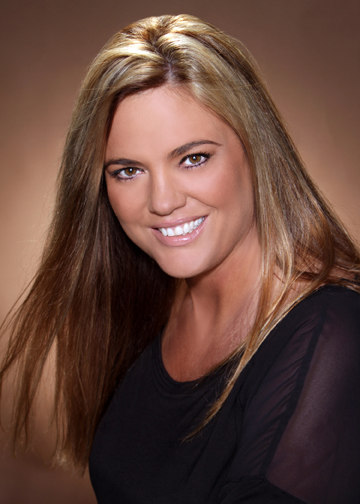 I should apologize for not being more articulate in my quote to Fred regarding on-air talent and social media – when the stations and individual accounts should be used.
I should apologize for not being more articulate in my quote to Fred regarding on-air talent and social media – when the stations and individual accounts should be used.
I would never expect talent to make social content only about the station. That’s self-involved and boring, right?
Content should be whatever triggers reaction and interplay between talent and audience.
What I do believe is when you’re on-air, take care of the mothership.
Here’s why:
Most of radio has spent the past decade neglecting station social assets, while talent built up their own following – on the station’s dime and time.
And while there’s nothing wrong with talent building a following – we need that – there must be a mutually beneficial relationship between station and talent when it comes to social media.
Our station’s vibe – the look, feel and sound – along with the experience must always be consistent with what comes out of the speakers.
Image is everything.
Yet all too often, we see our incredible stations looking like ghost ships socially – either no one is manning the ship, and/or there’s awful corporate type content pushed out, confusing the brand experience.
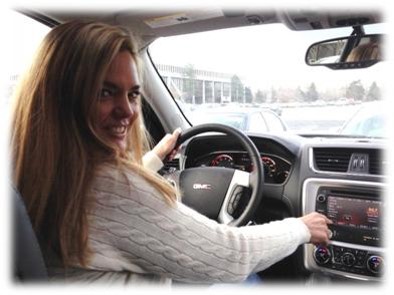 The best visual case I can give you regarding strategic use of station and talent social accounts is KQRS/Minneapolis. Its Program Director, Scott Jameson, understood and then executed the “Put the mothership first when you’re on air” policy.
The best visual case I can give you regarding strategic use of station and talent social accounts is KQRS/Minneapolis. Its Program Director, Scott Jameson, understood and then executed the “Put the mothership first when you’re on air” policy.
Perhaps it worked because he explained the why: KQRS needs to look just as alive and magical online as it sounds on-air.
And who better to elevate the essence of KQRS than its talent when they are on-air?
They put care in KQRS everywhere and use their own social accounts when they get off the air. The plus is it feels even cooler interacting with talent on their “own” accounts when they are “off the clock.”
I hope this better explains the “why.” I’m now going to go follow you on Twitter, Shannon.
Thanks, Lori.
So, two very wise, insightful “takes” on radio’s social dilemma with air talent from two people who have taken the time to study the space, as well as “walk the walk.”
There’s a lot of wisdom in these words, and a chance to talent, digital managers, and even ownership to consider the implications, opportunities, and challenges as radio continues to navigate the social space.
Thanks to both Shannon and Lori for taking time time to talk to each other – and to share their insightful views with all of us.
- What To Do If Your Radio Station Goes Through A Midlife Crisis - April 25, 2025
- A 2020 Lesson?It Could All Be Gone In A Flash - April 24, 2025
- How AI Can Give Radio Personalities More…PERSONALITY - April 23, 2025




Thank you for considering me on this blog post, Fred. I’m humbled you thought it was worthy of being on your site. -SH
Shannon, lots of great reactions to your commentary and philosophy. Thanks so much for engaging.
“Put the mothership first” sounds like a band-aid solution for a radio station/cluster/company unwilling to invest in a local social strategy. I’ve seen versions of it implemented a lot and it’s one of the reasons why you can write that radio stations, “continue to struggle with social media strategies” in 2018.
Blocking off social media into on-air shifts feels old-school. Most social networks serve content based on algorithms and not chronologically. I just checked my Instagram and the first post was from 4 hours ago. Users see the most engaging content, not the most recent content.
Jimmy Fallon doesn’t sign-in to @NBC at 11:30. NBC, The Tonight Show, and Jimmy Fallon are all obviously related. But, they’re different brands with different voices.
DJs need to use social media in their own voice. A station needs its own voice, too. If it helps to think of it in radio terms, create posts as if you’re hearing the person who voices your imaging.
Hire a good social media manager to be that voice. If you can’t afford that, assign the role to the person who is sharing the most engaging content already and give them some direction on how to represent the station brand as a whole on social media.
I enjoyed this communication. Very well thought out from Shannon’s part. I have both a “morning show” facebook page and a personal facebook page. My personal page has very few station listeners as friends. There are many I don’t want stalking me on Facebook. But the 100-200 listeners who share the positive things in their life, and don’t take every sentence as a personal affront I enjoy sharing my other life with. And we often see each other at community events and have a conversation.